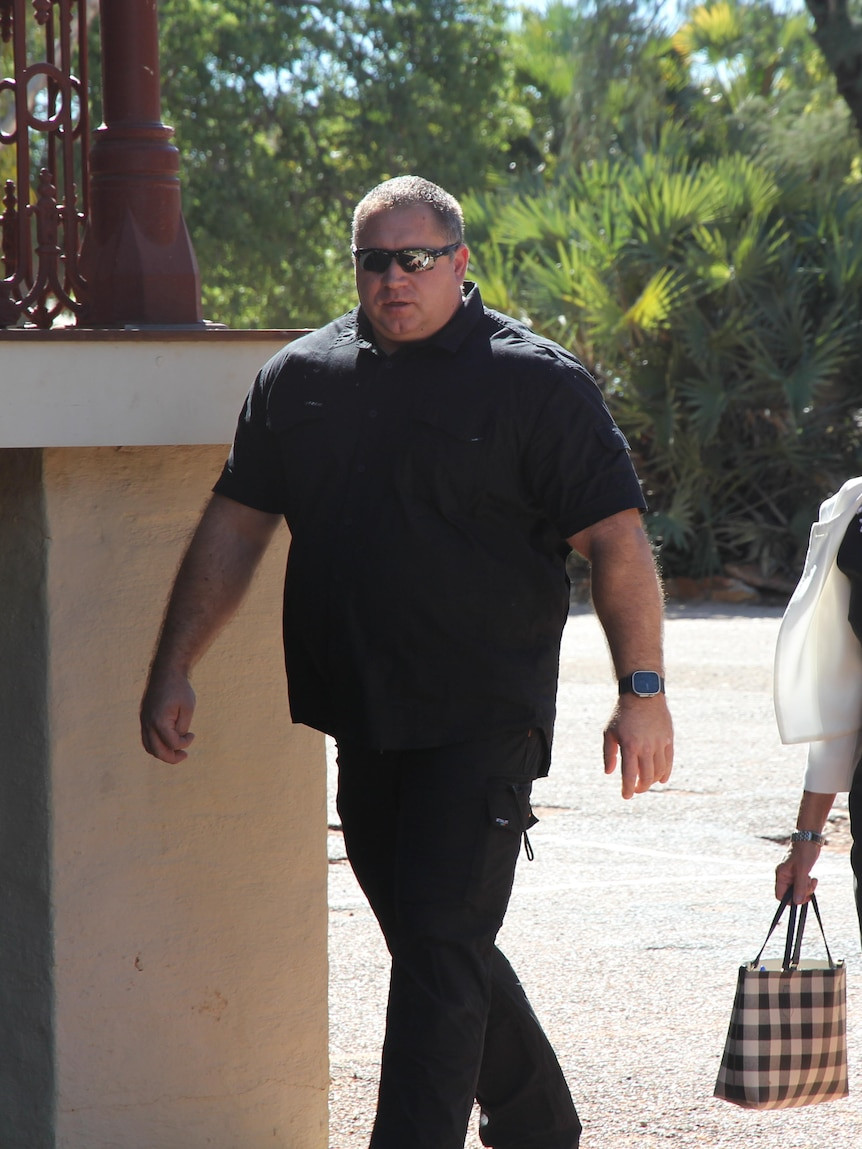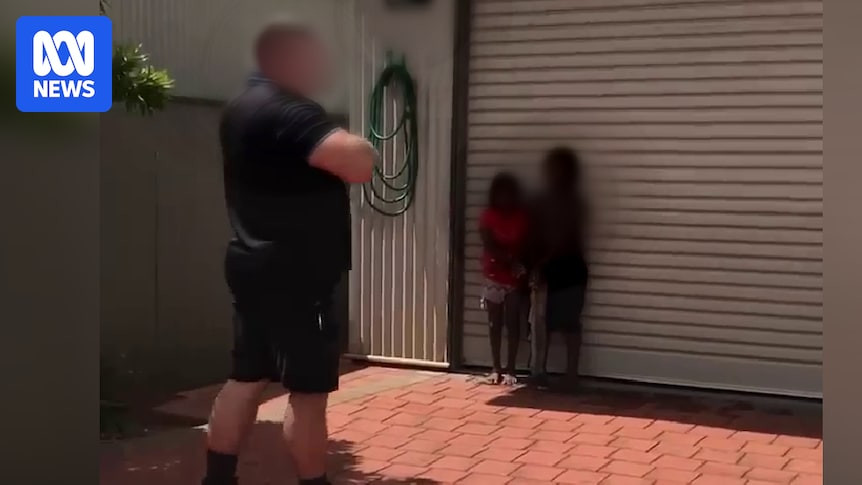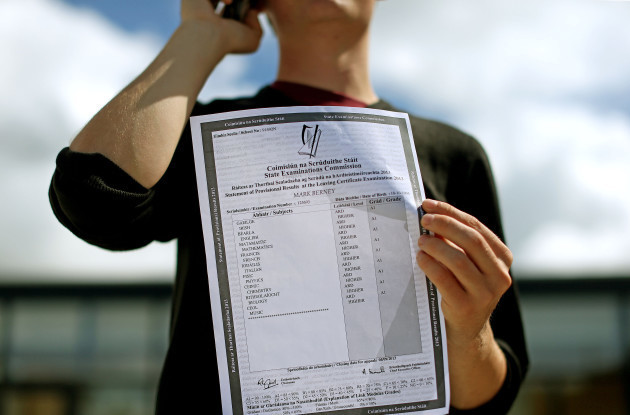A man who cable-tied the hands of three young children in Western Australia's north has faced trial, with his defence lawyer arguing his client carried out a “lawful” citizen's arrest.
However, police prosecution labelled the man's acts as “dehumanising” towards the children he restrained.
Matej Radelic, 46, appeared in the Broome Magistrate's Court for a trial on Thursday, after pleading not guilty to three counts of aggravated common assault in April. The incident in Broome, which was live-streamed to social media, showed two young children with their hands cable-tied together at a Cable Beach property on March 5. Police later confirmed three children — aged six, seven and eight — had been restrained by Mr Radelic after he discovered them swimming in his pool. The video of the children and subsequent media coverage made international news.
The police prosecution and defence agreed on a statement of material facts, with Mr Radelic admitting he cable-tied the children's hands together before phoning police. The facts stated the children's actions — not withstanding their ages — constituted “trespass and criminal damage” to the Cable Beach property.
However, the crux of the trial focused on whether the force Mr Radelic used against the children was reasonable and necessary.
His lawyer Seamus Rafferty submitted to court that the 46-year-old was “a victim of crime”, as his home had been broken into four times between December 2023 and January 2024, but did not make any suggestion the children were involved.
Mr Rafferty also told the court local police took 37 minutes to respond to the triple-0 call, prolonging the time the children were restrained. The court heard audio from the triple-0 call made by Mr Radelic, in which he asked police to come to his property and assist.
Body-worn footage from a police officer who spoke to Mr Radelic after the incident was also shown, where he spoke of recent damage to his property.
“I mean, there's no consequences for anything,” he said.
“What would you do? ... If you think I need to go to jail, I will.”
Detective Sergeant Jarrad Collins, the investigating officer, confirmed the incident had been flagged as a lower priority 3 for police attendance.
When questioned by Mr Rafferty, Sergeant Collins confirmed he wrote in his running notes that Mr Radelic had lawfully executed a citizen's arrest. Sergeant Collins also said police had altered the initial charge from deprivation of liberty to aggravated common assault.
Police prosecutor Mícheál Gregg argued that while he did not have an issue with a citizen's arrest being made, the children's compliance in leaving the pool and sitting down meant it was unreasonable for Mr Radelic to have cable tied their hands.
“[There was] a dehumanising effect of tying these three children with cable ties … [it] catapults it into the unreasonable,” he said.
Sergeant Gregg told the court Mr Radelic had other options available to him and the 46-year-old should have divorced any frustration over previous incidents from his decision making that day.
“The circumstances simply weren't there to justify any use of force,” he said.
In his closing statement, Mr Rafferty said the citizen's arrest was required to identify the children who were trespassing.
Mr Rafferty urged Magistrate Deen Potter to acquit his client on all counts and remove emotion from consideration of the facts.
“It's not a good look and I accept that,” he said.
“This case is not about optics, not about emotion, race or vigilantism.
“What my client did this day was lawful.”
After listening to all evidence, Magistrate Potter said he would reserve his decision on the matter.
Mr Radelic was granted bail, to reappear on October 4.
The Case for a Citizen's Arrest
The defence argued that Mr Radelic acted within his rights as a citizen to detain the children, as he believed they were trespassing on his property. Mr Rafferty highlighted that Mr Radelic's home had been broken into four times in the two months leading up to the incident, causing significant damage. He emphasized that police took a considerable amount of time to respond to the call, leaving Mr Radelic with no other options. Mr Rafferty also argued that the cable ties were used solely to identify the children and were not applied tightly, as one child managed to escape the restraints. The defence stressed that the intention was to detain the children temporarily until police arrived.
The Prosecution's View
The prosecution contended that Mr Radelic's actions were excessive and unreasonable, arguing that the use of cable ties was unnecessary and dehumanising. They highlighted that the children were complying with Mr Radelic's instructions to leave the pool and sit down, making the use of restraints unwarranted. The prosecution suggested that Mr Radelic had other options available to him, such as contacting the children's parents or waiting for police. The prosecution emphasized that Mr Radelic should have separated his frustration over previous incidents from his decision-making on the day.
The Verdict Awaits
The magistrate has reserved his decision on the case, with the verdict expected on October 4. This case raises important questions about the limits of citizen's arrests, the use of force in detaining individuals, and the responsibilities of both citizens and law enforcement in such situations. It remains to be seen whether the magistrate will find Mr Radelic's actions to be justified, or if he will be found guilty of aggravated common assault. The outcome of this case could have implications for the future application of citizen's arrest laws in Australia.



















